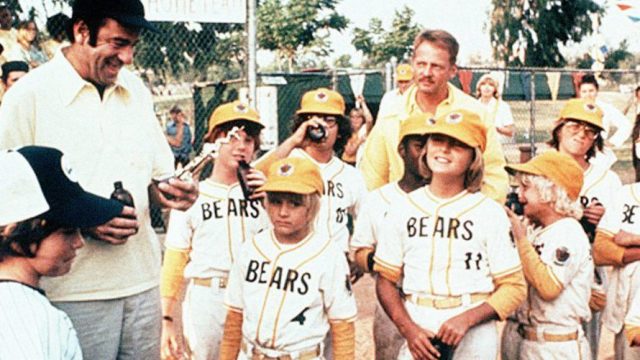Three cheers for the FAR! For sports, for misheard song lyrics, for cheering itself! Cheer loudly unto madness, deep unholy madness where only the boldest performance artists dare!
Thanks to Ruck Cohlchez for contributing this week, may he Be Excited, B-E Excited. Send articles for inclusion throughout the next week to ploughmanplods [at] gmail, post articles from the past week for discussion below, and have a Happy Friday.
Scott Tobias talks the rise of the cheerocracy with Bring It On director Peyton Reed:
I admittedly was thinking [the script] was something I would read a few pages of and would not be into it. But I read it, and in the first couple of pages, Jessica Bendinger’s script had that opening cheer, which was almost verbatim to what ended up being in the movie. And I thought it was really smart from the beginning, because it grabbed you, and it confronted the audience’s preconceived notions about cheerleaders right up front, and it was really funny, and also felt like, “Wow, this is really visual. This could be like a mini Busby Berkeley musical number to open the movie.”
Chloe Lizotten dives into the weird work of Connor O’Malley for Reverse Shot (and compares it to Hypernormalisation for bonus Solute conversation points):
Released into the wilds of the Queens Center mall with dried blood on his temple, O’Malley explains to baffled patrons that serum injections have “made [him] normal”; here, normalcy means perusing The Disney Store and VR booths, doing jumping jacks in the galleria, trying to join the military, and declaring himself “bailiff of the food court.” This is a distinctly contemporary American hellscape, but if Charlie Chaplin and Jacques Tati were socially aloof within environments of cold modernity, O’Malley’s outcasts can barely communicate as they navigate a world corroded by mediation.
At Crooked Marquee, Zach Vasquez highlights the sports movies from the eclectic career of Michael Ritchie (Solute conversation point deduction for not counting outrunning a wheat thresher and thus leaving out Prime Cut):
Each of Ritchie’s sports films from this decade looked askance at the idea of winning and losing, and even when his heroes did win—as in Downhill Racer and The Candidate—the victories ring hollow, coming at too great a personal cost and leaving the victor adrift and unfulfilled. Conversely, Ritchie’s ‘70’s oeuvre shows that the greater dignity actually lies in defeat, even if, as in The Bad News Bears, said dignity involves the losers telling the winners to take their trophy and shove it up straight their asses.
Finally, Mike Vago dives into the international phenomenon known as Soramimi, or the phenomenon of hearing lyrics in a different language as phrases in your own language:
Thing we were happiest to learn: China has tons of these. Besides the Soramimis already mentioned, “Oppa Gangnam Style” sounds like, “My father just murdered him”; “Beat It” sounds like “Got a pen?”; Punjai hit “Tunak Tunka Tun”’s chorus translates to “Oh the freezing cold of winter, how pale it feels,” but in Mandarin sounds like, “It’s freezing cold, I’m playing with dirt in the Northeast.”

